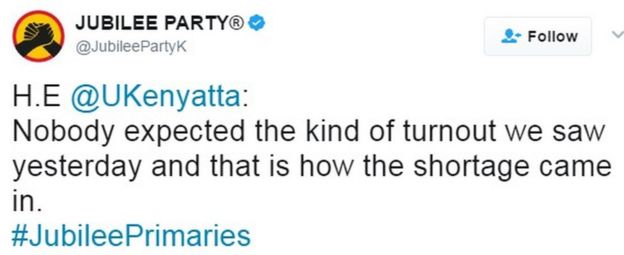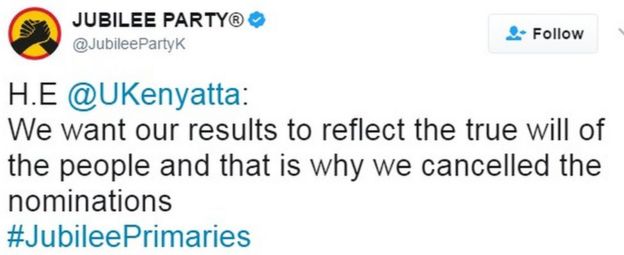Wall Street Journal Video:
http://www.wsj.com/video/disney-cuts-ties-to-youtube-superstar-pewdiepie/AF3B6886-3245-4C48-AD5D-098F1E1ABEA9.html
PewDiePie's Response Video:
https://www.youtube.com/watch?v=lwk1DogcPmU
This really shows how the News today became an industry, not a service. The news (even well reputed news sources) are extremely biased to the extent of speaking falsehood. Have you ever clicked a "click-bait" looking title? After reading the actual content, the reader is almost always disappointed or has a "meh' response as the title is exaggerated compared to the content itself. Wall Street Journal's video and articles (along with other news sources) took so many things from Pewdiepie's video out of context, I actually thought they were straight-up trolling the viewers. I realized eventually that these news sources new that 99% of the viewers would simply read the article, take it as truth, and move on, never taking time to watch pewdiepie's videos to check the truth. News sources today have taken advantage of that and literally writes whatever they want to. The goal isn't to inform the reader or present factual truth. Most new sources today has a goal to get the most click/views, and thus creates the most controversial news (taking things out of context) to get more views on their webpage. I personally, would recommend the Philip de Franco show on youtube as a reliabe and non-biased news source.
2017년 6월 13일 화요일
2017년 6월 6일 화요일
Kenya election: Kenyatta blames primaries chaos on turnout (with Response)
Kenya election: Kenyatta blames primaries chaos on turnout
Kenyan President Uhuru Kenyatta has blamed huge voter turnout for the chaos at his party's primaries on Friday, which led to them being cancelled.
In many areas across the country, there were delays, with some skirmishes also reported as contestants accused their opponents of rigging.
Mr Kenyatta admitted to reporters that not enough election materials had been provided.
The primaries are in preparation for August's national poll.
The election will take place nearly a decade after disputed election results fuelled violence that left more than 1,000 dead and 500,000 displaced.
However elections in 2013 passed off relatively peacefully.
Mr Kenyatta said his Jubilee Party had underestimated the number of people who would turn out for the nominations.
"Let us avoid pointing fingers," he said in a series of tweets.
 Image copyright@JUBILEEPARTYK
Image copyright@JUBILEEPARTYK Image copyright@JUBILEEPARTYK
Image copyright@JUBILEEPARTYK Image copyright@JUBILEEPARTYK
Image copyright@JUBILEEPARTYK
Mr Kenyatta called on voters and contestants to be patient as the party prepared to repeat the vote in the affected areas.
The Jubilee party was holding primaries in 21 out of the 47 counties on Friday, most of them party strongholds.
Nominations in the capital Nairobi had already been pushed back to Monday. The remaining counties will nominate their candidates on Tuesday.
Parties must hold their primaries by Wednesday, the election authorities have said.
Last week, similar polls for the opposition Orange Democratic Movement led by former Prime Minister Raila Odinga witnessed violence, particularly in the western Kenya region.
Mr Kenyatta is seeking a second term in office.
He is being opposed by a coalition of opposition parties known as the National Super Alliance, which is expected to announce its presidential candidate next week.
Cited:
"Kenya Election: Kenyatta Blames Primaries Chaos on Turnout." BBC News. BBC, 22 Apr. 2017. Web. 06 June 2017. <http://www.bbc.com/news/world-africa-39679089>.
Response:
I think it's great that he isn't blaming opposing sides for the chaos as it will spur more violence. I hope things go peacefully like the last election. This article is from the BBC, isn't biased by the looks of it and is written to update readers on what's happening in the Kenyan Elections this year.
Response:Your Guide to the Main Political Players in Kenya’s Elections
Excited for the results this year- not that it will affect me in any way. Since I'm leaving to college in a couple of months, this elections should mean nothing to me. However, I love Kenya and is interested in how things turn out. By the looks of it, the main figures are actually son of the first president (Jomo Kenyatta), son of the first vice president(Jaramogi Odinga) and others. Even Korea's previous president (President Park) was the daughter of a dictator who ruled Korea for 25 years. Although this is not the case for Kenya necessarily, we can see these figures highlighted as they are descendants of iconic figures. Anyways I hope the election goes well and there is no violence involved throughout the entire process.
Your Guide to the Main Political Players in Kenya’s Elections
Your Guide to the Main Political Players in Kenya’s Elections
by
Michael Cohen
Kenyans are gearing up for elections in August with trepidation. Four of the six votes held since the advent of multiparty democracy in 1991 have been marred by violence and intimidation. The lead-up to this year’s contest has been characterized by discord over the electoral rules and the impartiality of the electoral commission. The presidential race is set to be a cliffhanger, adding to the tension.
These are the main players and their party associations :
President Uhuru Kenyatta
Kenyatta, 55, who won power in 2013 after joining forces with one-time rival Wiilliam Ruto under the banner of the Jubilee Alliance, is seeking a second term. The son of the nation’s first president, Jomo Kenyatta, he worked as a bank teller, studied politics, economics and government at Amherst College in Massachusetts and ran his own export business before entering politics. A member of the Kikuyu community, the largest of more than 40 ethnic groups in Kenya, he won election as a lawmaker in 2001 and served as minister of local government, trade and finance, as well as deputy prime minister. The International Criminal Court charged Kenyatta and Ruto with crimes against humanity for instigating violence after the 2007 vote that claimed more than 1,100 lives, but the cases were dropped in 2014 and 2016 respectively for a lack of evidence. Both men denied any wrongdoing.
Vice President William Ruto
Ruto, 50, is backing Kenyatta’s re-election with the understanding that he’ll get support when he runs for the top job in 2022. Ruto has been pivotal in rallying his native Kalenjin community, the country’s fourth-largest ethnic group, to support Jubilee. He served as agriculture minister and higher education minister in President Mwai Kibaki’s coalition government that was formed after the violence-plagued 2007 election. He was dropped from the cabinet in 2011, returning as vice president in 2013 after standing as Kenyatta’s running mate. Ruto has been implicated in several scandals besides the ICC case, including allegations that he defrauded the Kenya Pipeline Co. of millions of shillings in a 2011 real-estate deal. Kenya’s High Court acquitted him of all charges due to a lack of evidence.
Raila Odinga
Odinga, 72, has had three unsuccessful runs at Kenya’s presidency. He came closest to winning in 2007, when he and many observers maintained that he secured the most votes even as Kibaki was declared the winner. Odinga eventually agreed to become Kibaki’s prime minister under a power-sharing deal that helped end two months of violence. Odinga alleged he was cheated out of the presidency again in 2013, when he won 43 percent of the vote because there was widespread rigging, a contention rejected by the Supreme Court. It’s unclear whether Odinga will run for a fourth time -- his Coalition for Reforms and Democracy agreed to unite with three other parties last month to contest the elections under the banner of the National Super Alliance, or Nasa, and it has yet to choose a candidate. The son of Kenya’s first vice president, Jaramogi Oginga Odinga, Raila Odinga commands strong support among the Luo, the country’s third-biggest ethnic group.
Kalonzo Musyoka
Musyoka, 63, who trained as a lawyer, ran for the presidency in 2007 when he finished third behind Kibaki and Odinga. He was named vice president in the coalition government that was formed the following year and held the post until the 2013 vote, when he was Odinga’s running mate. He is the leader of the Wiper Democratic Movement, which also signed up to Nasa.
Musalia Mudavadi
Mudavadi, 56, served as former president Daniel arap Moi’s vice president in 2002 and as deputy prime minister to Odinga from 2008 to 2012. He also held several posts in Moi’s cabinet, including that of finance minister. He contested the 2013 presidential elections, finishing third behind Kenyatta and Odinga. Mudavadi, the leader of the Amani National Congress he founded in 2015, spearheaded the formation of Nasa and has signaled he’s prepared to be its presidential candidate.
Moses Wetang’ula
Wetang’ula, 60, is a leader of the Forum for the Restoration of Democracy-Kenya party, which is also part of Nasa. He trained as a lawyer and was previously chairman of Kenya’s Electricity Regulatory Board, foreign minister, trade minister and minority leader in the Senate.
Gideon Moi
Moi, 53, is the youngest son of Daniel arap Moi and the leader of the Kenya African National Union party. While Moi is backing Kenyatta’s re-election, his party has entered into an alliance with Isaac Ruto’s Chama Cha Mashinani party to contest the legislative vote. Like Deputy President William Ruto, Moi is a Kalenjin and could undermineJubilee’s support in the Rift Valley, a key voting block. Moi has served as a senator since the 2013 elections.
Cited:
Cohen, Michael. "Your Guide to the Main Political Players in Kenya's Elections."Bloomberg.com. Bloomberg, 16 Mar. 2017. Web. 06 June 2017. <https://www.bloomberg.com/news/articles/2017-03-16/kenya-s-elections-who-s-who-guide-to-the-main-political-players>.
피드 구독하기:
덧글 (Atom)